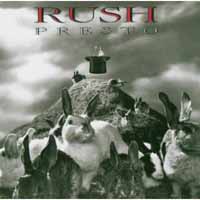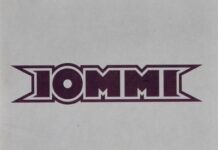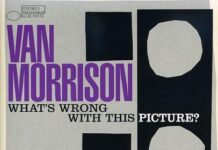Presto, Rush’s thirteenth album released in 1989, was
very much a return to form for the Canadian trio. Having started out heavy with
albums like Caress of Steel, then getting downright spacey
with their popular 2112, before delivering a string of outstanding
albums — A Farewell To Kings, Hemispheres,
Permanent Waves and the album that rocketed them to superstardom
Moving Pictures — Alex Lifeson, Neil Peart and Geddy
Lee proceeded to get lost in the 80s.
Lifeson’s superb guitar playing was relegated into the background behind
synthesizers and regurgitated lyrical concepts (not to mention Lee’s switching
to a Steinberger bass and Peart incorporating more electronic drums into the
mix). Albums like Grace Under Pressure, Power Windows
and Hold Your Fire might have had their moments, but they were
few and far between.
Presto, on the other hand, marked a way back for the boys.
Geddy Lee himself said that Presto is a singer’s album. The arrangements
do indeed support the vocal and Lee has never sounded better. Opening with the
absolutely fantastic staccato of “Show Don’t Tell,” there’s
a commercial chorus, a bass popping in the middle and Lifeson’s return
to playing — really playing. Peart’s pristine snare hits are like
a heavy waves of air springing forth from Rush’s lungs that have breathed
synths for too long.
Lifeson twangs the jangly chords, driving low notes with Peart, and hitting
his vibrato bar precisely over “Chain Lighting,” an unusual groove
tune from the band. This one gets heavy, but the trio plays the nuisances perfectly
between the choruses and verses. Lee pops the hell out of his bass, while Lifeson
gets wild and silly during his lead. The band is firing on all cylinders on
this one. Lee has stated that “The Pass” is one of the band’s
favorite, and this ballad, in the “Subdivisions” lyrical mode, is
a real treat that not only shows off a truly poignant vocal but a solid arrangement
underscored by bass chords. This is my favorite track on the album. “War
Paint” is a bit poppy, with a nice use of an arpeggiated keyboard. The
lyrics, however, aren’t so special, relying on an oft-mined idea, despite
a stellar vocal build at the end.
“Scars” sees the band getting downright funky with some of Peart’s
more intricate, complex drumming (something he claims to have heard while on
a bicycle tour of Africa). Overall, the band is really tight with Lifeson offering
more color without being drowned out by keys.Lifeson plays a pretty soft acoustic
on the title track, behind Lee’s clear-as-a bell-vocal. “Presto”
simply floats like a nice love song. “Superconductor” is again another
area where the band is attempting a little bit of commerciality, though it’s
a decent song with a good beat you can dance to (Ever dance to Rush?). “Anagram
(for Mongo)” has a chorus you’d find in any late 80s teen movie,
but the middle break uses what is quite unusual in a Rush album — a piano.
“Red Tide” also employs a piano through some soft verses.
There’s some funky riffing on “Hand Over Fist,” a song that
not only finds Lee delivering a full-throttle vocal, but also featuring a lyric
with a more somber and personal tone. Lifeson is all over the place with intricate
picking, colorful vibrato swipes and single pull-offs. As for Peart, it’s
easy to lose sight of what he does as a drummer because by the time you are
deep into a Rush album, you have grown accustomed to his fills, his speed and
his amazing ability — making even the most complicated beat sound simple.
“Available Light” is another one with the piano. The chorus is lilting,
featuring some great harmonies from Lee. The song truly lifts off during three
distant sections — verses, chorus and bridge — creating an overall
big, sweeping sound. Lifeson fills in with some nice bluesy turns during the
verses, while Lee and Peart are simply a rhythm section impossible to beat!
Presto marks a true step forward for the trio during a period
of their career where anything could have happened. Over 20 years later, it
doesn’t seem like they’ll be stopping anytime soon. But going back
to 1989, It’s a rush to hear this Rush one more time.
~ Ralph Greco, Jr.




















